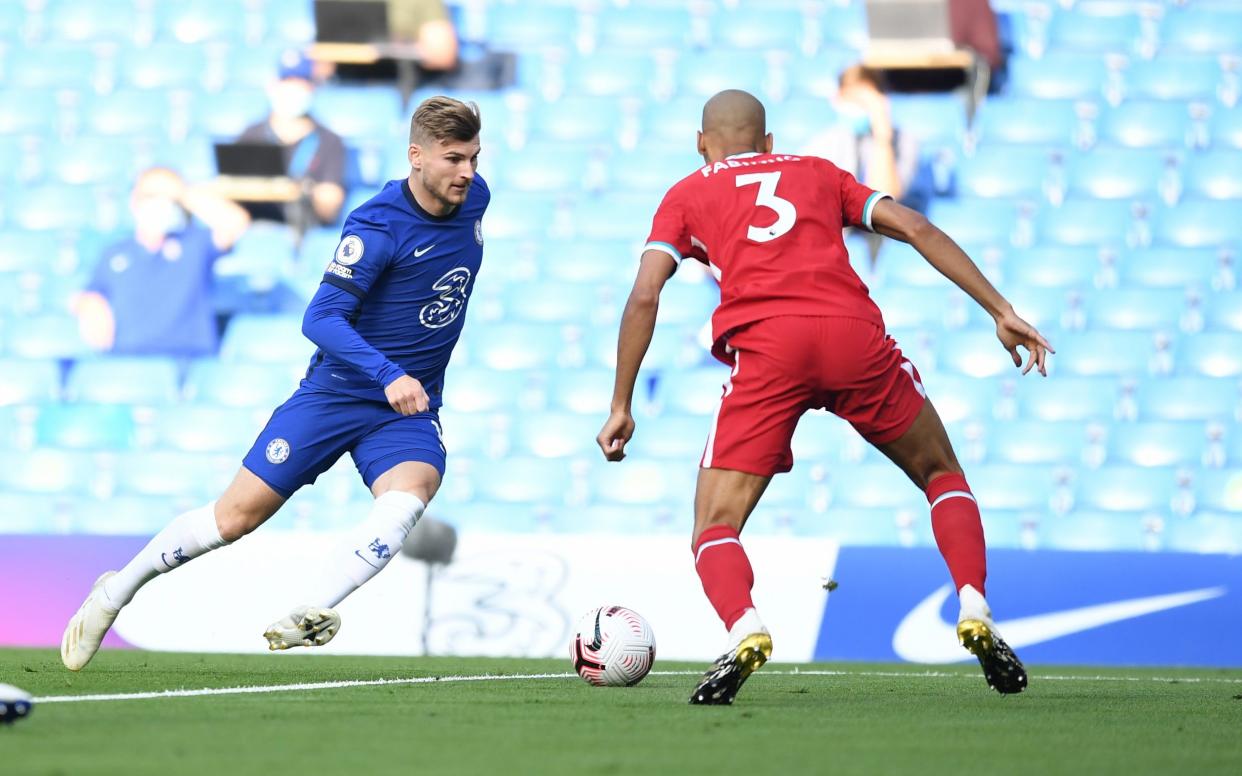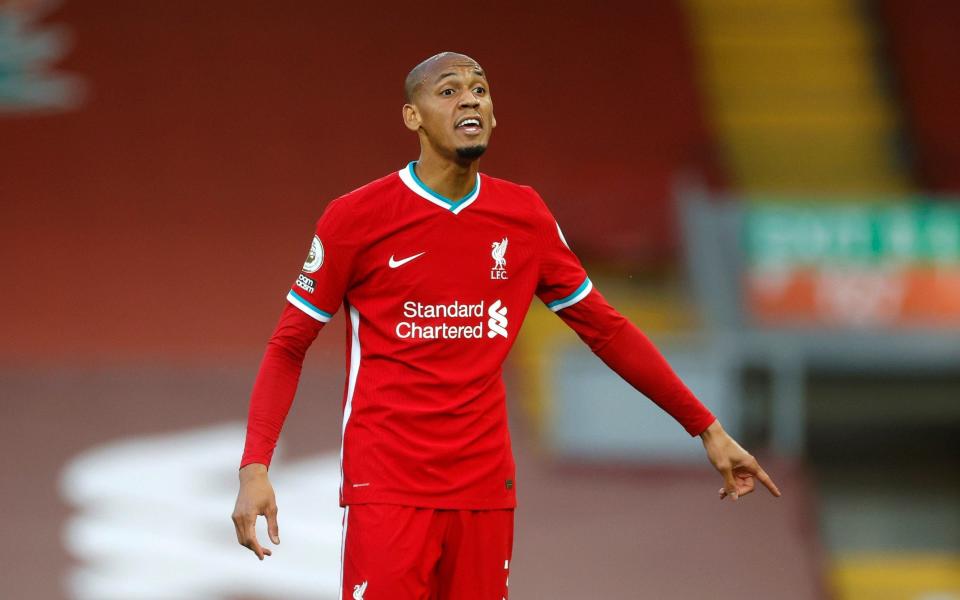Timo Werner in his pocket: how Fabinho became the unsung hero of this Liverpool side

There’s a typically cruel gag doing the rounds on social media today explaining why Liverpool walked away from a deal for Timo Werner.
Apparently there was not enough room in Fabinho’s pocket to accommodate the German striker.
Werner’s day will surely come to silence such harsh jibes, but Sunday was a brutal reality check about the current standing of Liverpool and Chelsea, most vividly represented by Fabinho almost casually filling an unfamiliar centre-back role and outclassing his direct opponent.
Slotting alongside Virgil Van Dijk and just ahead of Alisson Becker was hardly new for the Brazilian. That is how it has been for him since day one, his arrival sandwiched between the duo in 2018, which may partially explain why in the extensive list of high class signings over the last five years, Fabinho’s tends to be overlooked.
It was 48 hours after Liverpool’s defeat to Real Madrid in the Champions League final when Fabinho, somewhat under the radar, checked into Anfield.
The deal was increasingly typical of the work of Sporting Director Michael Edwards, who while drowning out the noise demanding he sign Lyon’s Nabil Fekir was swiftly concluding negotiations with the midfielder from Monaco.
Edwards would quickly turn his attention to another pressing engagement, completing a £65 million deal with Roma for Alisson, which given Liverpool’s goalkeeper calamities in Kiev naturally earned more attention.
“A lot of people talk about those two signings - Van Dijk and Alisson - being the two most important taking Liverpool to the next level,” says Kop legend Dietmar Hamann.
“But over the last two years, Fabinho’s contribution has been equally important. He has been one of the three missing pieces of the jigsaw that took them to the Champions League and Premier League.”
Until his virtuoso performance as a centre-back in Sunday’s afternoon stroll around West London, the Brazilian has certainly never received plaudits comparable to Van Dijk and Alisson. There is some irony that it was a flawless display in an unfamiliar role that woke-up so many beyond Merseyside to his qualities.

For evidence how much Fabinho’s excellence has been overlooked, witness the recent PFA team of the year for 2019-20. There was no absentee as strange as his given his critical role in Liverpool’s title run. His match-winning display (which included a stunning 25 yard goal) against Manchester City in November 2019 alone should have been a guarantee of recognition. An untimely injury midway through last season can be the only explanation for his peers forgetting how tough he is to play against.
“I would not say he is underrated, but I would say he has been underappreciated,” said Hamann.
“Not by the home faithful at Anfield or his own club, but maybe generally. He is the type of player who is only appreciated when he is not playing. He did not play in the first three or four months he was at Liverpool, but since he broke into the team I do not think he could have done much more. You very rarely see Liverpool hit on the counter-attack because of Fabinho. His positional sense is great. He is a physical player. He is fast. His passing is great. Before Fabinho, Liverpool lacked that specifically defensive minded player in midfield. Bringing him in was vital. With the forwards and the two attacking full-backs, Liverpool needed someone who gave others freedom who everyone trusts.”
Naturally, Hamann’s analysis is focused more on Fabinho’s qualities as a number six, where the ex-anchorman excelled during his Liverpool career between 1999-2006.
But those are the traits which make it possible for Jurgen Klopp to utilise Fabinho at centre-back, a position where he has excelled before - most notably against Bayern Munich in the Champions League run of 2019.
Thiago Alcantara’s 45 minute introduction already has Liverpool fans purring at what a combination of he and Fabinho will bring to Klopp’s midfield, with the balance of physicality and technical brilliance promising another dimension.
While Thiago looks like he will pull the strings and find previously uncharted paths to the front three, Fabinho will continue to offer the balance making him more of an unsung hero of the Anfield renaissance.
“A player like Fabinho brings balance, being an organiser, being disciplined and never getting carried away when Liverpool have control of the game and are winning,” says Hamann.
“One thing I never like seeing is when a side is 2-0 up and then all the flicks and attempts to be too clever start. You have to play exactly the same as if it is 0-0, doing all those things which put you in a good position. I think Fabinho is especially good at that. He plays the same way whatever the circumstances, thinking a step ahead of the game. If you look at every recent Champions League winner, they have a player like him.”
A healthy debate could rage as to which of Klopp’s additions was truly the most significant of his reign, persuasive arguments offered that it was those at the start of the rebuilding process - especially Sadio Mane - who most radically changed the team’s dynamic.
Fabinho may never top the list for fans and pundits. To Klopp and Edwards, there was no shrewder investment of £40 million.

 Yahoo News
Yahoo News 
